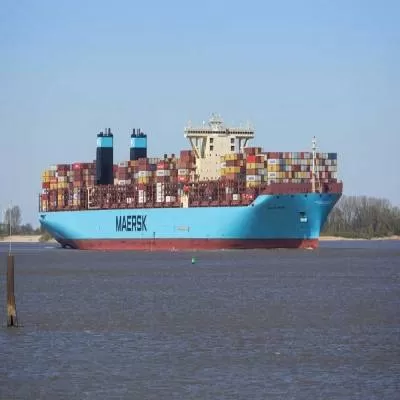Tags :
Schedule a Call Back
 Danish shipping giant Maersk announced a 45% decline in net profit for the second quarter, attributing the drop to supply chain disruptions caused by the on-going Red Sea crisis, which has led to increased operating costs.
Danish shipping giant Maersk announced a 45% decline in net profit for the second quarter, attributing the drop to supply chain disruptions caused by the on-going Red Sea crisis, which has led to increased operating costs.The crisis, exacerbated by attacks from Yemen's Iran-backed Huthis, has forced some shipping companies to reroute around southern Africa to avoid the Red Sea, a critical maritime corridor that handles about 12% of global trade.
Since November, the Yemeni rebels have targeted shipping in the Red Sea with drones and missiles, citing solidarity with Palestinians amid the Gaza conflict.
For the April to June period, Maersk reported a net profit of $798 million and a revenue of $12.77 billion, both of which fell short of analysts' expectations. Operating profit also decreased by 26% to $2.14 billion.
Maersk, the world's second-largest shipping company, has ceased transiting the Red Sea due to on-going risks.
"The situation in the Red Sea remains severe, continuing to pressure global supply chains. We anticipate these conditions will persist through the end of the year," said Vincent Clerc, CEO, Maersk.
To mitigate the impact, Maersk has invested in additional equipment across its operations and is working to support its customers amid the disruptions.
Recently, Maersk raised its full-year underlying operating profit forecast by $2 billion, projecting a range of $9 billion to $11 billion, driven by increased freight costs due to the crisis.
(ET)


Subscribe to our Newsletter & Stay updated
The Indian tyre industry is expected to benefit from the government’s renewed emphasis on infrastructure development outlined in the Union Budg...